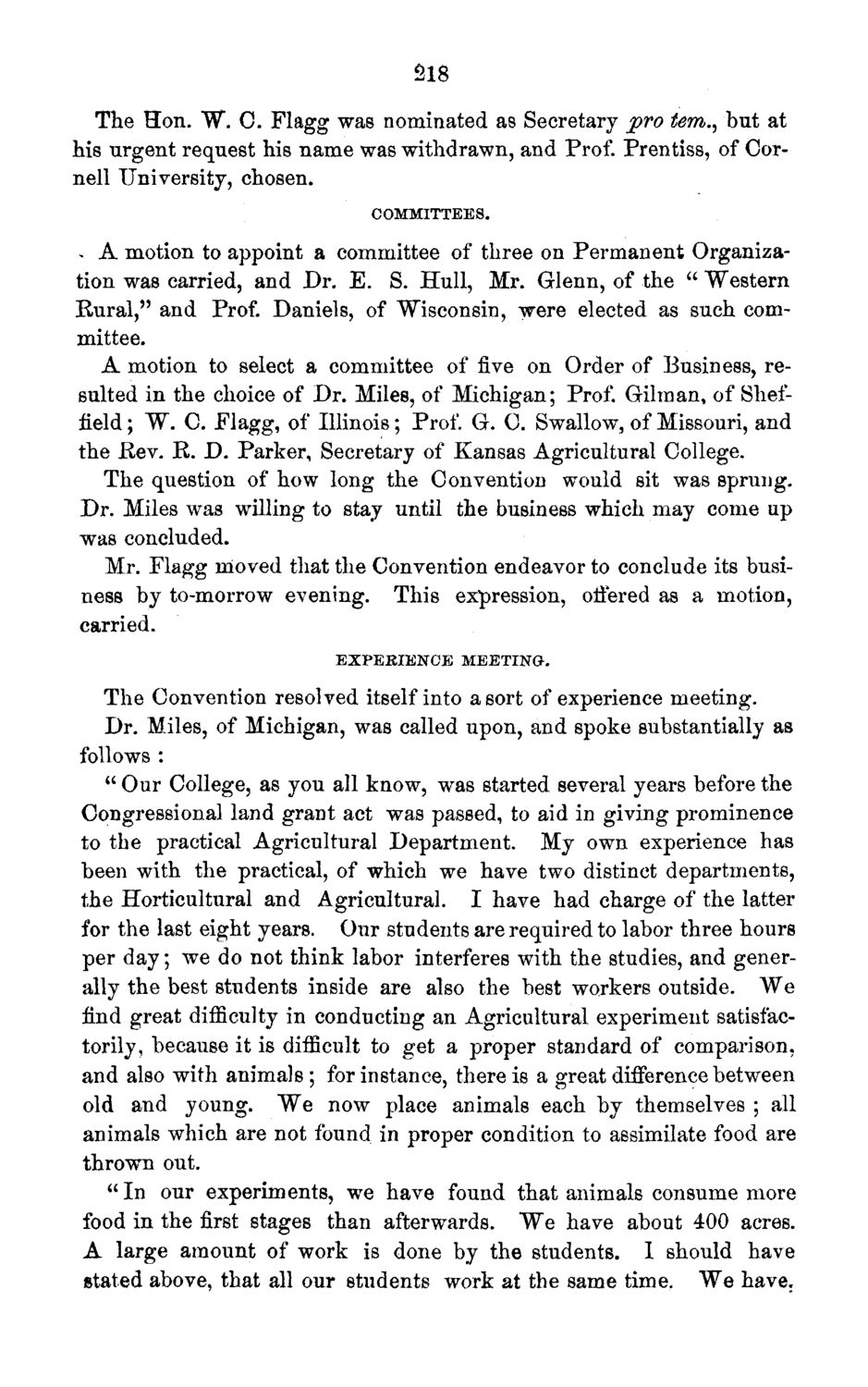| |
| |
Caption: Board of Trustees Minutes - 1871
This is a reduced-resolution page image for fast online browsing.

EXTRACTED TEXT FROM PAGE:
218 The Hon. W. 0 . Flagg was nominated as Secretary pro tern., but at his urgent request his name was withdrawn, and Prof. Prentiss, of Cornell University, chosen. COMMITTEES. - A motion to appoint a committee of three on Permanent Organization was carried, and Dr. E. S. Hull, Mr. Glenn, of the " "Western Rural, 55 and Prof. Daniels, of Wisconsin, were elected as such committee. A motion to select a committee of five on Order of Business, resulted in the choice of Dr. Miles, of Michigan; Prof. Gilman, of Sheffield ; W. C. Flagg, of Illinois; Prof. G. 0 . Swallow, of Missouri, and the Rev. R. D. Parker, Secretary of Kansas Agricultural College. The question of how long the Convention would sit was sprung. Dr. Miles was willing to stay until the business which may come up was concluded. Mr. Flagg moved that the Convention endeavor to conclude its business by to-morrow evening. This expression, offered as a motion, carried. EXPERIENCE MEETING. The Convention resolved itself into a sort of experience meeting. Dr. Miles, of Michigan, was called upon, and spoke substantially as follows : " Our College, as you all know, was started several years before the Congressional land grant act was passed, to aid in giving prominence to the practical Agricultural Department. My own experience has been with the practical, of which we have two distinct departments, the Horticultural and Agricultural. I have had charge of the latter for the last eight years. Our students are required to labor three hours per day; we do not think labor interferes with the studies, and generally the best students inside are also the best workers outside. We find great difficulty in conducting an Agricultural experiment satisfactorily, because it is difficult to get a proper standard of comparison, and also with animals ; for instance, there is a great difference between old and young. W e now place animals each by themselves ; all animals which are not found in proper condition to assimilate food are thrown out. " In our experiments, we have found that animals consume more food in the first stages than afterwards. W e have about 400 acres. A large amount of work is done by the students. I should have stated above, that all our students work at the same time. We have.
| |